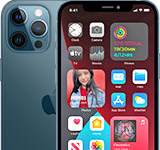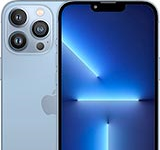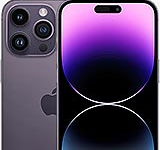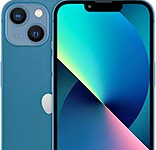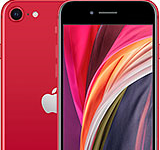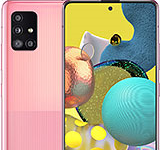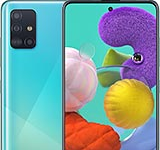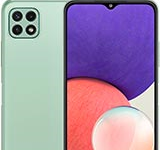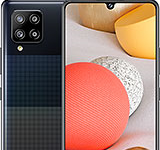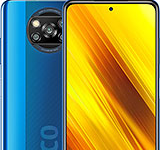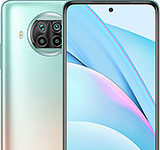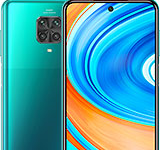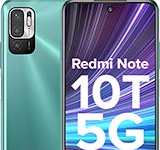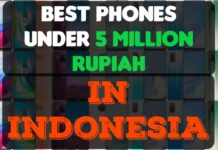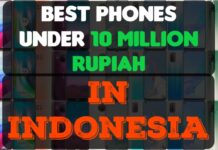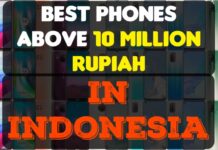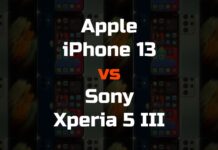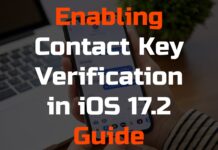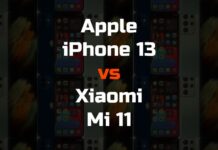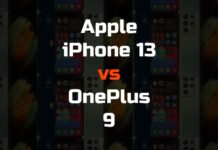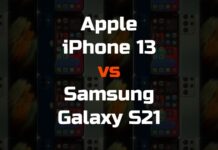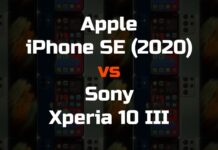Updated on November 8, 2023
In this blog post, we will compare five notable features of the Apple iPhone 12 and the OnePlus 8T. Both smartphones were launched in October 2020 and offer impressive specifications and capabilities. We will delve into their respective features and discuss their strengths and weaknesses.
So, let’s dive in and explore the differences between these two popular smartphones.
Network Technology and Connectivity
Both the Apple iPhone 12 and OnePlus 8T support a wide range of network technologies, including GSM, CDMA, HSPA, LTE, and 5G. This ensures that users can enjoy fast and reliable connectivity, whether they are browsing the internet, streaming content, or making calls.
Both devices offer essential connectivity options like Wi-Fi, Bluetooth, and GPS.
However, the Apple iPhone 12 supports additional technology, namely EVDO and EV-DO Rev A, which might benefit users in specific regions. The inclusion of these other technologies provides broader compatibility and better network coverage in select areas.
Conclusion
While both smartphones offer comprehensive network connectivity options, the Apple iPhone 12’s support for EVDO and EV-DO Rev A gives it a slight edge in terms of broader network compatibility.
Display Quality and Features
The Apple iPhone 12 sports a Super Retina XDR OLED display measuring 6.1 inches. It delivers stunning visuals with a resolution of 1170 x 2532 pixels and supports HDR content playback. The display is protected by Ceramic Shield glass, enhancing durability and providing improved drop performance compared to standard glass.
On the other hand, the OnePlus 8T features a Fluid AMOLED display measuring 6.55 inches. It offers a high refresh rate of 120Hz, resulting in smoother animations and scrolling. The display also supports HDR10+ content, offering vibrant colors and enhanced contrast.
The addition of an always-on display feature allows users to conveniently check time, notifications, and other information without fully activating the screen.
Conclusion
Both smartphones provide excellent display quality, but the OnePlus 8T’s higher refresh rate and always-on display feature give it an advantage for users who prioritize smoother visuals and convenient information access.
Performance and Operating System
The Apple iPhone 12 is powered by Apple’s A14 Bionic chipset, along with a hexa-core CPU and a four-core graphics processing unit (GPU). This combination delivers exceptional performance, allowing for smooth multitasking, app launches, and gaming experiences. The iPhone 12 runs on iOS 14.1, which can be upgraded to the latest iOS 16.3 version.
Contrastingly, the OnePlus 8T is equipped with the Qualcomm Snapdragon 865 5G chipset, an octa-core CPU, and an Adreno 650 GPU. These specifications ensure powerful performance, enabling seamless multitasking and demanding gaming. The smartphone runs on Android 11, which is upgradable to the OxygenOS 13 based on Android 13, providing a customizable and user-friendly interface.
Conclusion
Both devices offer top-notch performance, but the choice between iOS and Android ultimately depends on personal preference. The Apple iPhone 12’s A14 Bionic chipset and iOS ecosystem provide a reliable and optimized experience, while the OnePlus 8T’s Snapdragon 865 and OxygenOS offer customization options and flexibility.
Camera Capabilities
The Apple iPhone 12 boasts a dual-camera setup, featuring two 12 MP sensors. This setup enables users to capture sharp and detailed photos with accurate colors. Additionally, the iPhone 12’s camera system includes advanced features such as Night Mode, Deep Fusion, and Smart HDR, enhancing low-light photography and dynamic range.
In comparison, the OnePlus 8T is equipped with a quad-camera setup, featuring a 48 MP main camera, a 16 MP ultrawide lens, a 5 MP macro lens, and a 2 MP depth sensor. This versatile camera system allows users to capture a wide range of subjects, from expansive landscapes to detailed close-ups. The OnePlus 8T also offers features such as Nightscape and Super Macro mode to enhance photography capabilities.
Conclusion
Both smartphones deliver impressive camera performance, but the OnePlus 8T’s quad-camera setup offers more versatility, allowing users to explore different photography styles and capture a wider range of subjects.
Battery and Charging
The Apple iPhone 12 is powered by a 2815 mAh non-removable battery, which offers decent battery life. It supports wired charging and is compatible with Apple’s 20W fast charger. However, it’s worth noting that the charger is not included in the box.
On the other hand, the OnePlus 8T features a larger 4500 mAh non-removable battery. It supports blazing-fast 65W wired charging, allowing users to charge their device from 0 to 100% in just 39 minutes using the included charger.
Conclusion
The OnePlus 8T takes the lead in terms of battery capacity and charging speed. Its larger battery and faster charging capabilities provide users with more convenience and peace of mind when it comes to battery life.
Notable Features
Key Specs |  |  |
Apple iPhone 12 | OnePlus 8T | |
Launch | 2020, October 23 | 2020, October 16 |
Network Technology | GSM / CDMA / HSPA / EVDO / LTE / 5G | GSM / CDMA / HSPA / LTE / 5G |
Sensors | Face ID, accelerometer, gyro, proximity, compass, barometer (market dependent) | Fingerprint (under display, optical), accelerometer, gyro, proximity, compass, barometer (market dependent) |
Dimensions | 146.7 x 71.5 x 7.4 mm | 160.7 x 74.1 x 8.4 mm |
Weight | 164 g (5.78 oz) | 188 g (6.63 oz) |
Build | Glass front (Corning-made glass), glass back (Corning-made glass), aluminum frame | Glass front (Gorilla Glass 5), glass back (Gorilla Glass 5), aluminum frame |
SIM | Nano-SIM and eSIM or Dual SIM* | Dual SIM (Nano-SIM, dual stand-by) |
IP Rating | IP68 dust/water resistant (up to 6m for 30 min) | - |
Display Type | Super Retina XDR OLED | Fluid AMOLED |
Display Size | 6.1 inches | 6.55 inches |
Display Resolution | 1170 x 2532 pixels | 1080 x 2400 pixels, 20:9 ratio |
Display Protection | Ceramic Shield glass | Corning Gorilla Glass 5 |
Platform OS | iOS 14.1, upgradable to iOS 16.3 | Android 11, upgradable to Android 13, OxygenOS 13 |
Chipset | Apple A14 Bionic | Qualcomm SM8250 Snapdragon 865 5G |
CPU | Hexa-core (2x3.1 GHz Firestorm + 4x1.8 GHz Icestorm) | Octa-core |
GPU | Apple GPU (4-core graphics) | Adreno 650 |
Internal Memory | 64GB 4GB RAM, 128GB 4GB RAM, 256GB 4GB RAM *NVMe | 128GB 8GB RAM, 256GB 12GB RAM *UFS 3.1 |
Main Camera | Dual: 12 MP | Quad: 48 MP, 16 MP, 5 MP, 2 MP |
Selfie Camera | Single: 12 MP | Single: 16 MP |
USB | Lightning, USB 2.0 | USB Type-C 3.1, OTG |
Battery Type | Li-Ion 2815 mAh, non-removable | Li-Po 4500 mAh, non-removable |
Charging | Wired | 65W wired, 100% in 39 min |
Battery Life | Endurance rating 84h | Endurance rating 104h |
Colors | Black, White, Red, Green, Blue, Purple | Aquamarine Green, Lunar Silver, Cyberpunk 2077 Edition |
Price | $599 / €867 / £679 / C$518 / ₱43,990 / ₹48,990 / Rp14,129,394 | $599 / €600 / £450 / C$599 / ₱29,990 / ₹30,999 / Rp3,570,000 |
Full Specifications & Review |
Overall Conclusion
Both the Apple iPhone 12 and the OnePlus 8T offer exceptional features and capabilities. The iPhone 12 excels in terms of network compatibility and durability with its EVDO and EV-DO Rev A support and Ceramic Shield glass protection.
On the other hand, the OnePlus 8T shines with its higher refresh rate display, customizable Android experience, versatile camera system, and faster-wired charging.
Ultimately, the choice between these two smartphones depends on individual preferences, such as the desired operating system, camera versatility, and charging speed. Regardless of the choice, users can expect a premium smartphone experience with either the Apple iPhone 12 or the OnePlus 8T.
Your thoughts are welcome. Feel free to leave any comments below.


